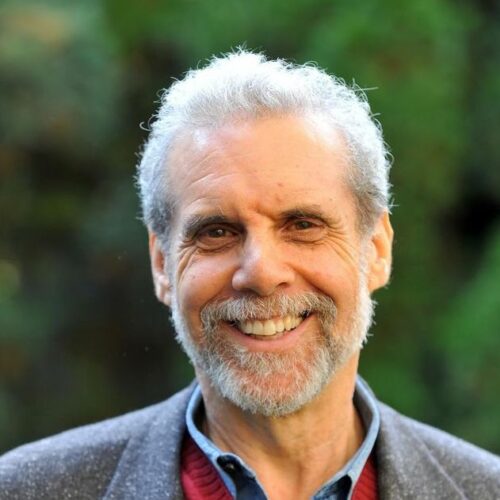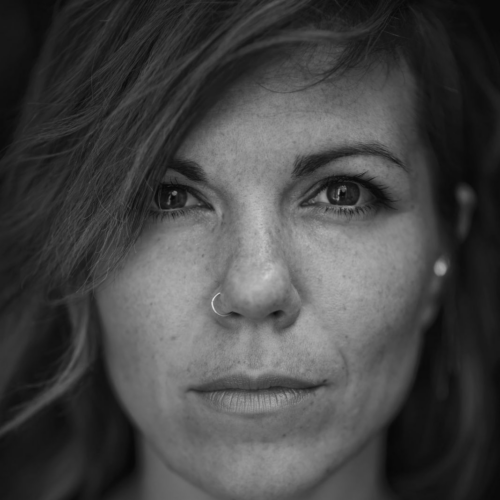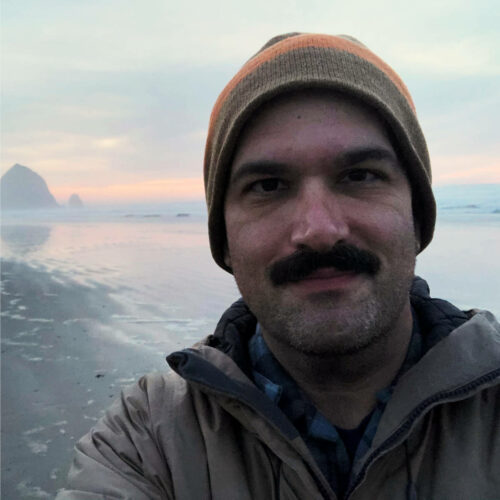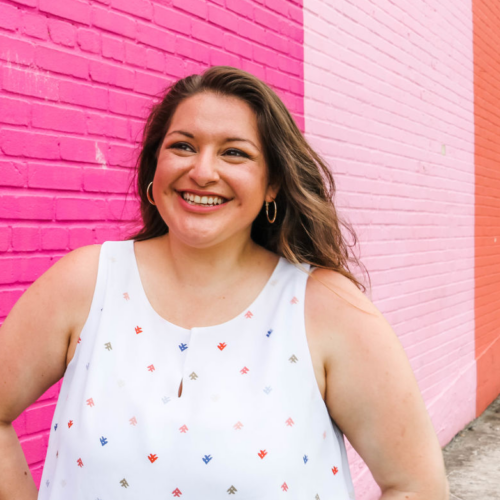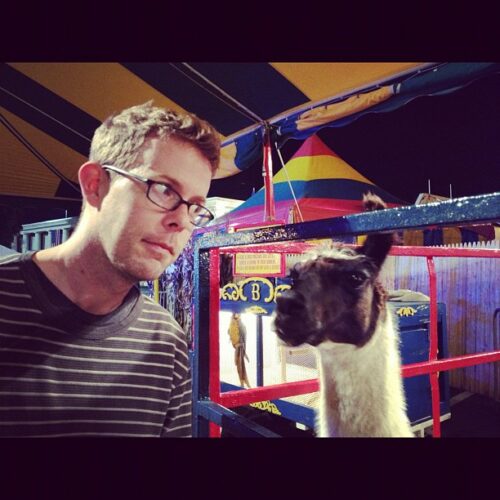
S1E7 Adapting to an Ever-changing World
In Today’s episode, Daniel Goleman speaks with Executive Coach Sanjay Rao Chaganti who shares a story about his client, Laila,a woman with a vibrant career which took her to all corners of the globe. When Laila returns home, she realizes that she no longer fit into the world she left behind.
In this episode, Liz and Hanuman also discuss the many ways they have had to adapt during the global pandemic.
Our Guests
Sanjay Rao Chaganti
Sanjay’s passion is to cultivate leadership excellence by helping leaders lead more passionate and fulfilled lives and work better as teams through customized one-on-one coaching and interactive sessions. Through a combination of modern transformational practices, time-tested wisdom from ancient cultures, and drawing upon personal lessons, he creates enjoyable opportunities for introspection, infusion of positive energies and practical tools to unlock the tremendous potential in each of us.
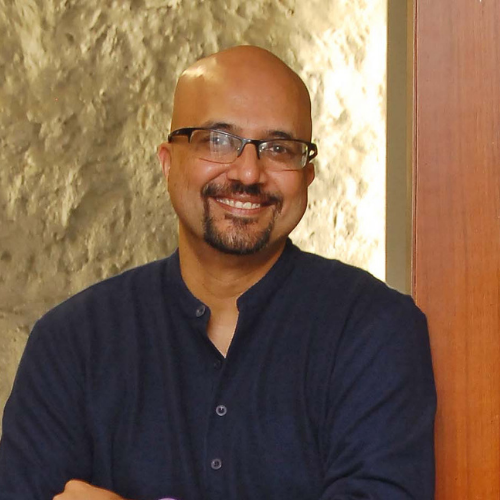
Resources
The following resources were referenced in today’s episode:
- Ecological Intelligence book by Daniel Goleman
- Learn more about Adaptability in the Building Blocks of Emotional Intelligence: 12 Leadership Competency Primers by Daniel Goleman et al.
- From our blog: What is Emotional Intelligence?
- Support our podcast by becoming a monthly Patron.
Subscribe to the podcast:
Subscribe now and sign up for our newsletter to get notified as new episodes are released.
Have feedback? We want to hear it! Submit a Voicemail.
If you enjoyed today’s episode, please rate our show and submit a review. It helps us spread the word about the show.
Episode Credits:
This show is brought to you by our co-hosts Daniel Goleman, and Hanuman Goleman and is sponsored by Key Step Media, your source for personal and professional development materials focused on mindfulness leadership and emotional intelligence.
- Special thanks to Ezra and Levi, whose voices you heard at the top of the show.
- This episode was written and produced by Elizabeth Solomon and Gabriela Acosta.
- Episode art and production support by Bryant Johnson.
- Music includes theme music by Amber Ojeda.
Transcript
Kid 0:00
How do you feel about changes when they happen?
Kid 0:03
Sometimes I don’t like that sometimes I do like them sometimes. depends on what’s changing that. Yeah.
Dad 0:11
Let’s come up with an example of a big change.
Kid 0:17
Do you want a big sad change or be happy to
Dad1 0:19
another big happy change, but
Kid 0:21
a big sad changes
Dad 0:25
have been heavy change.
Kid 0:29
Oh being happy change when you celebrate that Sudoku that was big and happy.
Dad 0:34
It wasn’t a change though. Because I often complete message. It’s gotta be like, I’ve changed where your life is one way before and then your life was another way after
Kid 0:44
a happy change. Farming that felt pretty good. It was like, Yay, I’m getting older, I’m cleaning get smarter, and also a bit wide. Like, what’s my class going to be like?
Dad 0:59
And how did it end up feeling? Good? Yeah.
Kid 1:04
Totally.
Kid 1:06
Class,
Kid 1:07
one of them. Most of the time, it matters. what’s changing, like if something that you really like, or a person you really like. And then something changes. If it changes the bedroom? I like that. More changes to wash. You might probably not like that.
Kid 1:25
Yeah.
Dad1 1:28
I think I know what you mean.
Hanuman Goleman 1:44
Welcome to first person plural, emotional intelligence and beyond. I’m Hanuman Goleman. I’m here with our AI correspondent Elizabeth Solomon to discuss the adaptability, competence of emotional intelligence.
Unknown Speaker 1:56
Hi Hanuman!
Unknown Speaker 1:57
Hey Liz!
Elizabeth Solomon 2:00
I’m really looking forward to talking about this topic, because not only does it relate to our last episode on ecological intelligence, but I think if there’s one thing most of us around the world can agree on, it’s that this past year has challenged us to be adaptable in ways we never thought we were going to have to be. So not only has the past year been one where we’ve all been forced to adapt, but I think many people are experiencing right now, as we’re coming out of the pandemic, or coming out of this most acute version of the pandemic, that we’ve changed as human beings, that isolation has changed us that the past year has changed us. And that as we are emerging back into a social life, and having you know, the possibility of or FaceTime, the possibility of travel. I think there’s a real question here of Who are we now? And how do we relate now to the things that were once familiar as this new version of ourselves? Because I do think there’s been an incredible amount of transformation for for many of us, things that we might not even be totally cognitively aware of. And certainly plenty of transformation for our society.
Hanuman Goleman 3:19
That feels right to me. And and I think I’m pretty squarely in the camp that you just described where it feels like there’s a lot of deep movement under the surface of my life. And I’m really not sure what’s been happening. I think it’ll take years to really understand how, how things have changed internally for me alone, and then thinking about how things have changed for everybody and how that what that means for the world when we all come together again. Yeah,
Elizabeth Solomon 3:52
I think one of the first realizations I had in the pandemic was that I actually have more social anxiety than I knew I had. And I’m a very extroverted person. I mean, I love being around people. I love being in groups. I love traveling. And so that was actually like a pretty startling realization for me to notice. Kind of how much anxiety was spurred for me or how much energy I was giving away by these small interactions, right, just all the goings about the day to day and once those things were peeled away, I started to have new realizations about where I’m really showing up in conversations that feel very connected or very authentic, and what is actually quite a bit of small talk. And emerging, you know, my daughter just went back to school. And so I’m on the schoolyard, again, with all of these parents who many of whom are strangers. And I’ve been noticing I’m like, I’m not really the same person that I was. Last year, and I can distinctly feel the difference between what it is to connect with someone who you know, is a close friend or who I have rapport with, which are the people I’ve been connecting with over the past year, versus showing up in these surface level conversations with with strangers. And I don’t say it surface because those people are surface or because I’m surface. It’s just sort of the small talk and schmoozing of what we do as humans on the planet who are just sort of building small relationships in many moments.
Hanuman Goleman 5:32
It’s hard for me to discern, Is it fear of getting a deadly virus? Or is it social anxiety. And now that I see it, I know where I am, and I can, I can act with intention, I can act with intention in any given social moment, and maybe modulate, I’m sure I’ll have to figure out how to hold it, how to relate to work properly in a healthy way. So I guess adaptability for me in this context is understanding where I am now I can make a proper decision how to be where to go.
Elizabeth Solomon 6:05
Yeah, I also think one way I’ve been practicing adapting to the reintegration, and the re socialization is just even to be more aware of what is it that makes me anxious, and sometimes exhausts me through social situations. And then what I’ve been noticing is, Wow, my attention. And a social dynamic is in so many places of the room, like there’s a hyper vigilance that I operate with that I think many people operate with, specifically people who have experienced any form of trauma. And so I’m hyper attending to what is happening, right, what are what are people saying? How might someone be feeling and that hyper vigilance is actually quite exhausting? And so I was playing recently with what what is it to draw my attention, closer to my own body and direct it to the person I’m actually in conversation with, instead of having my awareness being so spread thin,
Hanuman Goleman 7:06
I love us. Thank you so much. This. That’s exactly without understanding what I’ve been doing. In those moments, when I feel this tension or anxiety, I bring my attention to the experience in my thighs, particularly if I’m sitting down is just an easy place for me to ground. I’m like, okay, here I am. Here I am. And, and then it’s, it’s, it’s that grounding in the moment, this is what I what I’m feeling now. Now I can respond, because I know where I am. Thank you so much for saying that.
Elizabeth Solomon 7:45
So how am I and I feel like it’s really important to add here that this is something we can really only begin to practice when we have some modicum of psychological safety. So pulling our attention back into ourselves and out from the environment, it’s actually only possible when there isn’t any real danger. For some people attending to every detail of the environment, that kind of hyper vigilance is a necessity, because there’s actually a very real threat. For example, if you’re walking through a world that discriminates against you where your life is constantly in danger, it’s not always an option to withdraw your attention.
Hanuman Goleman 8:22
Thank you so much for saying that.
Elizabeth Solomon 8:24
So this is a perfect segue, because what you’re talking about is bringing the anxiety or bringing the present the real emotional experience out from under the carpet, which is something Dan talks about in his next interview with Sanjay Rao chaganti. So Sanjay is an executive coach. And in this interview, he talks about working with his client, Laila, and this woman who had a vibrant career which took her across many corners of the world. And she returns home to realize that she no longer fits into her old world the way she did before. So let’s dive in and listen to Dan talking with Sanjay.
Daniel Goleman 9:14
Hello, everyone, and welcome to the podcast. This is Daniel Goleman. And I’m in a continuing series of talking to coaches and leaders about the emotional intelligence competencies. Today, our topic is adaptability, flexibility and handling change, juggling multiple demands, adapting to new ideas or approaches. People with adaptability, stay focused on their goals, but easily adjust how to get there. You can meet new challenges well, and you’re nimble and adjusting to sudden change if you have the adaptability, competence, and basically, you’re comfortable with the uncertainty that leadership inevitably brings. today. My guest is Sanjay Rau Shaganti, who’s coming to us from Chennai, which is about 12 hours later the where I am on the East Coast, but I’m very happy to have Sanjay here today he’s 25 years of experience living and working in the US and Africa and Asia leadings in supporting cross cultural teams at large enterprises. He’s returned to his native shonai after about 20 years. And now he focuses on one on one coaching and group workshops on emotional intelligence. his credentials include being certified by Korn ferry hay group, in the motional, and social competence inventory so that he can base work in part on the profiles and so on, of emotional intelligence that he gets from that inventory. And he’s been using it along with other tools, of course, with senior staff in Zimbabwe in the states in India. Sanjay, welcome to the podcast, and I’m very interested in the work you’ve been doing with Laila. Could you tell us about her?
Sanjay 11:08
Well, thank Danny, I’m delighted to be on the show. My work with Lena began a couple of years ago, primarily, she is an incredibly talented, capable professional worked around the world. And she came back to her home country for a variety of reasons. And she took up a new role there as sort of country country advisor to a large organization. And it was a reputable organization at a very prominent and sort of role, which people looked up to. However, she found in a few weeks, that she didn’t really enjoy the road. And that’s when she turned to me and we started having a series of conversations. And then that’s really you know, how our journey started.
Daniel Goleman 12:00
So she’s had a vibrant career, it sounds like she comes back to her homeland, takes a job, she’s looking forward to it. And she finds it, it doesn’t quite fit her is that basically at that she’s unhappy. And by the way, this is not a rare situation, I think it’s pretty common, that people will be attracted to a job that doesn’t really quite work for them. So what did you do as a coach with her?
Sanjay 12:29
Well, I sort of recognized that what Laila was going through was, as you rightly put, it was very natural. She was sort of, you know, it was a re entry, almost think of a spaceship, which sort of comes or rocket which comes back into the atmosphere, so that the re entry friction, which, which sort of experiences as it go come through the atmosphere. And so she coming back to our own country, and coming back to a country, which she thought was familiar, but still alien, because she’d been away. So I think my work with her was really, it is really speaking sort of three different roles, which I sort of odd areas where one focus upon first was sort of getting hard to sort of unpack, or accept and acknowledge that the shifting sands that she felt, first of all, just fully acknowledging it and embracing it. Because we tend to have sometimes a tendency, as you know, all too well to sort of put things under the carpet. And we, you know, and put it under the rug and sort of hope that it’ll go away. But just pulling it up front looking at it, and embracing it was really sort of the first step. The second was a deep dive into her own values as a professional. And it was important for us to go down that journey, because to remind her of why she was doing what she was doing, and how this particular decision fit into her larger sort of life path or her values as such. And that was an important transformational moment really, because it reminded her of that what she really values being a problem solver. She loved leading teams, she loved being a creative person who thought out of the box. And you know, more than anything else, she loved the fact that she could demonstrate impact and value addition, if not on a daily basis, at least on a weekly basis. And her new role actually did not cater to those particular motivators, which sort of drove her. So that was really you know, the crux of the coaching relationship.
Daniel Goleman 14:46
So, in other words, you you helped her name it and accept what the problem was that
Sanjay 14:52
absolutely name it accepted and sort of go deeper within it and because typically, we all tend to the stick to what is available to us at our surface. But once one, you know sort of takes a deep dive within, then are we give space to our subconscious to throw up what is really alive for us. And what is something that is, you know, either holding us back or really nurturing and something which is really wanting to come out but hasn’t given been given an opportunity.
Daniel Goleman 15:22
And that’s where you went to the values level what how, how does this fit with their sense of purpose or dreams where she wanted to go, how she saw herself, and what mattered to her?
Sanjay 15:33
Absolutely, in that came up one particular issue which she was struggling with a relationship with her supervisor, and she was bearing a grudge. And it’s this. And that didn’t come up right up front. But it was only when she sort of was willing to go within that that surface, and it was a block.
Daniel Goleman 15:54
Could you tell us a little more about what was the nature of this fractured relationship with a supervisor, you say she bore a grudge, but what had happened
Sanjay 16:04
is essentially early into her into her job she lost, the organization lost a client. And while the all the verbal cues given by her supervisor, and the other senior members of the organization indicated that it was not her fault. All the sort of subtle and nonverbal cues, and you know, signs she got was that, you know, fingers were pointed at her?
Daniel Goleman 16:33
Well, that’s a big one. Yeah,
Sanjay 16:34
yeah. And the big client, and this is very early on into her sort of tenure in this new position. So this sort of double if a double standard, it’s kind of you know, I’m not telling you that so she felt that she was there was a lack of authenticity, and lack of being supported at that point where she felt that she was actually sort of already in a hard spot working in this very harsh environment.
Daniel Goleman 17:01
Sanjay, I’m just thinking of research that shows that having a bad relationship with your immediate boss, is one of the strongest factors in whether you feel good or bad about what you’re doing in your job. So she must have been in a terrible situation.
Sanjay 17:17
Oh, absolutely. Yeah. So here was your absolute right, and, you know, so. But again, what was what was remarkable about Laila was that, you know, once she sort of got into the coaching engagement, although they, you know, that wasn’t something that she presented as one of the agendas that she was grappling with, when it surfaced, she was totally willing to go into it. And sort of, as I said, a deep dive into it. And just by her, I would say, her flexibility and adaptability to go within and look at these different dimensions of things within herself that were bothering her. And just bring it up to light. And as you know, all too well, Daniel, you know, you’ll have very strong foundations of sort of a lot of the Eastern traditions, traditional practices, is that even if you just observe what is bothering you, it tends to minimize its impact
Daniel Goleman 18:13
was I think that’s the power of what’s been called Mindfulness now, which is so popular in business, where you adopt this neutral, observing positions, for the thoughts and feelings that come up spontaneously, which lets you see more than you ordinarily could. And I love the fact that you’re using adaptability and flexibility in a dimension where it’s not usually pointed to. And that is within that when you get stuck, what’s being what’s stuck is your attitude is your habits is your thoughts, is your feelings, you you may ruminate, you may run over and over the same, you know, complaints in your mind or in justices, whatever it is, but it leaves you as Laila was very stuck. And so your approach to coaching went inside, and encouraged her to embrace the shadow to look at the parts of her that were stuck, though, that we’re not adapting the situation that we’re making her actually unhappy. So that’s a very powerful approach and an interesting dimension to adaptability itself. So where do you go from there?
Sanjay 19:21
I went to where Linda went from there. And you know, all kudos to her on this really front because she’s and, you know, once she sort of shone the light within herself, as you rightly pointed out, what holds us back often is the stories that we constantly tell ourselves and the sort of neuroplasticity that sort of emerges as a result of this sort of constant storytelling.
Daniel Goleman 19:46
Well, let me unpack something very important. You just said, You’ve used the word neuroplasticity, which is a very important concept for, for coaches for anyone. And it’s simply the idea that the brain strengthens circuits. that are used repeatedly. So if you’re caught in one of these negative loops, oh, my boss doesn’t understand me. People are blaming me for losing the client, I’m imagining what Laila might have been telling herself. And the more you think about it, actually, the stronger the circuitry for that becomes, which means you’re more likely to recruit other thoughts and other feelings that support it. And you’re more likely to loop around that. And this, you know, this can become the kind of thing you wake up to, in the morning thinking about and worrying about. So it’s very important for a coach to understand that helping people shake free from that or identify it in the first place is a step toward changing toward adaptability.
Sanjay 20:45
Yeah, and so with respect to lelo, you use the phrase embracing the shadow, and that is one of the coaching pathways that worked really well with her, because when she was willing to look and say that, Okay, first, I really not just acknowledging, but really embracing that these are parts of me, which may not look very nice, but I fully recognize and appreciate that I am, I am bothered, I am irritated with my supervisor, in fact, and really pissed off and angry with, with this person. It was at that point that she was able to sort of I would say, it was a transformation moment, because then one is able to transform emotionally laden judgments into more sort of objective observations. And either observations about how you are responding or reacting, not necessarily responding to a situation.
Daniel Goleman 21:44
This is a tactic and strategy that’s used very commonly, as you may know, in cognitive therapy, where people who are depressed or chronically anxious will start to look in a more mindful way, the patterns that come up and identify the feelings and the thoughts that are triggering how they’re behaving. And it seems that you’re doing a similar thing. With Laila, though you may not have thought of it in those specific terms.
Sanjay 22:10
So it was really creating the space with some questioning combination of a nurturing environment, but sort of incisive, questioning, which any, you know, decent coach would, would create that space was for her to sort of look within. And you know, when you continue this conversation over a period of time, it became apparent to her that what she was what she was operating from, was not from her strengths. And so we went back a little dive deep dive into okito, if you’re not operating from your strengths, what are your strengths. And, you know, that’s when you sort of, at least in this particular case, the car turned in the path that she wanted to go, but in a positive path. And her strengths had been first and foremost, adaptability. I mean, this is a woman who went after grad school in Europe, then worked in a regional role around the world, and then had come back on our own volition back to her home country. And so in different roles in the commercial sector, in the in the non not for profit sector, she had, you know, played multiple roles. And that adaptability combined with her, you know, great sense of purpose and passion, which drives Laila. And those that sort of, you know, gotten submerged under this cloud of negativity. Would you said that she
Daniel Goleman 23:35
was working for a nonprofit. So that passion was directed toward helping people was what I sometimes call empathic concern, where you’re not only to Nin to people’s suffering, but you actually want to help them with was now what was driving her?
Sanjay 23:52
Oh, absolutely. That that came out when even her value statement, you know, going back to her work in at the high school level, that clearly came out at a very strong driver for her even when she was working in the commercial sector in in, in the transportation sector in Europe. But she was always looking for ways to contribute and give back to society.
Daniel Goleman 24:15
So that’s a very strong motivation. How did you help her become more adaptable in this particular situation? with that understanding,
Sanjay 24:25
helping her bring to the surface, what was challenging her wishes, which is step one, step two, was really what is her sort of long term values. And then step three, where, what is now her strengths that she would like to leverage and make sure that, you know the strengths that she was actually aligning herself to her strengths, so that she could sort of be in pursuit of her or in alignment with her long term values.
Daniel Goleman 24:58
So she You helped her if I could reframe this get in touch with a more positive self concept, one that would give her confidence and a sense of strength and purpose, instead of focusing on what was wrong, you’re helping her see what’s right.
Sanjay 25:13
You know, when you’re doing a debrief towards the end, she said, You helped me regain my confidence, Ah, there you go. And then she was able to tap into her innate adaptability. And then she sort of made a couple of key decisions, which are both for the immediate short run, but also for the long run to sort of put her in path on the right path over sort of her long term values as such,
Daniel Goleman 25:42
how did she use that adaptability to change anything about her role or her relationship with her supervisor?
Sanjay 25:51
So I either the first thing and, you know, kudos to her was really, once she embraced these, you know, and recognize her values and strengths. She said, this is not the job for me. And so she began a conversation with two different groups of people. One was her direct supervisor, and one were sort of board members and other stakeholders in the organization that she was working with. And lo and behold, as the things happen, once you sort of set the ball, the wheels in motion, and opportunity presented itself are calling, we’re stepping out and going back to the US. And although this position was in theory, in some people would have seen it as a step down, it was sort of as a technical director of, of this large organization. And it was a hands on sort of senior manager role in which she had now a large team that she works with, she has autonomy and authority as well as resources at her disposal. And she is able to actually operate not just at a strategic level, which was her previous job, but actually get down and dirty into implementation. And this sort of checked off the box, not just sort of being a problem solver and being creative person, and working with teams, but also met her very strong need for contribution to society, and ability to interact with the poor and the vulnerable, or in a more enhanced manner than her at a more strategic level. Sort of, she was able to make that switch. So she took on this position, and she’s thriving there. And that’s what is, you know, in a very strong male dominated work environment, she still has his challenges. But she is able to operate from a sense of positivity and being upbeat rather than sort of being defensive, or, you know, basically operating below par as such.
Daniel Goleman 28:07
So she was flexible enough to see that even though she had a higher status rule, by title, she would be happier and be able to use her abilities, as well as fulfill her sense of purpose and meaning by going into different roles. technical advisor.
Sanjay 28:24
Yeah, absolutely. And it was interesting in our coaching conversation, the metaphor that came up was Muhammad Ali’s famous Rope A Dope trick when he laid back and he said, You know, sometimes you just got to lay back and be ready, when the opportunity presents itself to come up and bounce. And she was willing to lay lay back and absorb whatever, maybe the social criticism of taking up this sort of position, which was one step below. But yeah, the flexibility was tremendous on her.
Daniel Goleman 28:58
And what happened was her supervisor,
Sanjay 29:01
yeah, that was also a very interesting. So once she recognized that she was bearing this grudge. And she was able to again, come to face with it, and accept it. And that acceptance was really quite beautiful, actually, I would say it’s beautiful because it allowed her to first and foremost acknowledge to herself, the hurt that she was feeling. And only when she gave herself the space to feel that hurt. She did something you know, in our coaching conversation, you know, we said when I asked her a question, what would you like to do with this hurt? And she said, You know what, I’d like to just share it with my supervisor. And she wrote a note to her supervisor, which was I You’re very special note because it didn’t point fingers. It didn’t say you did this, it just said, I felt like this,
Daniel Goleman 30:07
Sanjay, this is so important. When people feel hurt, angry, frustrated, and, and reach out to the person. That’s the object or the cause. So often they do it from an amygdala hijack where they’re caught in, you know, you did this to me, were in other words, they’re blaming, they’re attacking, but she was able to do it from a very different point of view, which is simply saying, I felt this, I she was taking responsibility for her feelings in the situation, which is very different, because that allows someone else not to feel defensive because they’re being attacked, but rather to be open and reach out, what did the supervisor do,
Sanjay 30:50
the supervisor was less surprised and said, this was not my intention. And, you know, we always you know, and this came up in our coaching conversations, that we often judge ourselves by our intentions and judge other people by their behaviors,
Daniel Goleman 31:11
that’s very well put.
Sanjay 31:13
And in your work with the competencies, you’ve rightly, you know, you endorsed the value of self awareness as being sort of the pivot on which the competencies are built. And this was clearly the case, once she became self aware, she shared the supervisor, supervisor, that herself then became a lot more self aware, that aha, maybe this is what has happened. And, you know, she, they met up, actually, and she said, You know, they had a great conversation, for the first time really open, no holds barred conversations of expectations and supervisor to was able to share some, you know, what her personal disappointments and, and in an oblique manner share some of the pressures that she felt because of losing that client as well. And so they are in a much happier spot than they were a few months ago. And it began with
Daniel Goleman 32:07
what sometimes called a non violent communication where you saw Yeah, here, openly how I feel, rather than make assumptions or attack. And claim, you know, you did this to me, it’s when that happened. I felt like this. Is that right?
Sanjay 32:24
Oh, absolutely. Yeah, you I used to distill the words, my mouth here, Daniel, because I just gone through a 10 day, nonviolent communication program, and what is called an intensive international training. And it was from that, that I had picked up this sort of wonderful language of communication, where you sort of, you express your needs, and the feelings and leave it at that without and then give space for the, for the listener to process and then respond in a manner that is appropriate to him or her. And so the tenets of NVC are nonviolent communication played out beautifully here.
Daniel Goleman 33:02
Yes. And I think that they allow people to exhibit the emotional intelligence competencies. at a higher level, it’s a very effective tool in nonviolent communication. For any coach and for anybody, you know, for husband or wife or parent, they’re also useful. At any rate. Let’s see now, if you could tell us what’s happened to Laila since then, Where is she now? And how is it going?
Sanjay 33:30
Well, I’d say three things. What has happened to her one is she is in this new role, she wakes up excited everybody because she knows clearly what a problem that is solved, as I said, being a problem solver is what is her sort of where she gets her hi from. And so she’s doing that she helps us improve relationship, which then allowed her to operate from a position of strength rather than fear and uncertainty. And it’s, as I said, a very tense and it’s tough work environment, even without the challenge of, of a troubled relationship with a supervisor. So, you know, she’s sort of been able to move the ball forward in that sense, and, you know, make things happen with because she feels confident about what herself and her relationship. And finally, which was really, really happy to hear. Creativity is something that she was really passionate about, but had put on the backburner. And she’s brought it right up front, and enrolled in a program, a long distance program with a prominent us university to pursue creativity and leadership. And that’s something that really ignited a spark within her that it’s so beautiful to see.
Daniel Goleman 34:48
It’s, it’s wonderful. Thank you, Sanjay, for being with us and sharing with us how you helped Laila fulfill her dream.
Unknown Speaker 34:57
Yeah. Thank you.
Elizabeth Solomon 35:11
I was thinking a lot about adaptability as we prepare to have this conversation and asking myself, what is it that helps me personally cope with change, the path of ease is to actually unite with that change and surrender to that change in some way. And there is this piece of acknowledging that there is like a trajectory for us as a collective in terms of what I would call our collective consciousness that is often outside the realm of my human understanding,
Hanuman Goleman 35:46
is I’m right there with you. I love that. Because how I heard the last thing you just said, is that ultimately, you don’t know what’s going on. And that actually is comforting for you that that there is something far bigger than anything that we could comprehend. And it’s not for us to know,
Elizabeth Solomon 36:07
I find with all of these things, like especially all of the Ei competencies, every single one of them has their shadow side, right, which, and that dovetails so well with even what this episode is about, just to acknowledge that everything in the universe has a shadow side. And we get so attached to trying to look at the bright and shiny side of everything. But I think the shadow side of adaptability can be this sense of like, oh, the goal is just to like, roll with it. And like see the positive, and just like go with whatever’s happening, right when the truth is, is that some of the things that are happening, are not okay are not fair, not just are violent, our lives can be in danger. And so I do think there’s like a fine line there,
Hanuman Goleman 36:58
the piece that you’re pointing to, we have to accept the terrible things that are happening for real, they are reality. And that doesn’t mean that we have to accept that they have to continue to happen, it doesn’t mean that we can just throw up our hands and not bother to move things in a direction towards equity for everybody.
Elizabeth Solomon 37:18
The other piece of the interview, I think, was really interesting was Dan and Sanjay talk about conflict and the role of self management and adaptability, right, the role of managing our amygdala hijacks, and they talk about coming into a conflict from a place of you did that to me versus coming in from a place of I felt this or I experienced this. And I just wanted to highlight that because I think this is like a really tangible thing that we can all practice and I find myself cutting to practice it all the time, the desire or propensity to point fingers and to other and to ostracize. And to think in polarities is so intense, we have to fight that all the time. Right. And in a way, transitioning to a sense of I feel this is that sweeping things out from under the carpet in an emotional sense, I think, what I experience myself locked in resistance, oftentimes on the other side of that is that there’s something I need to acknowledge I’m feeling and then I actually just break down in tears. And then there’s a release, and something can be welcome to the surface in order to transform, but I thought that that was a really beautiful part of what they were talking about.
Hanuman Goleman 38:43
You sound so healthy in that way that you allow yourself to feel those things. I have a therapist now that’s helping me understand my my habits and how I have historically approached understanding and like process things. It’s a real spiritual bypass.
Elizabeth Solomon 39:03
And I think for me, part of being adaptable, is starting with, okay, where am I experiencing resistance? What can I just surrender to and say, Okay, this just is and then it’s like that cathartic cry? Or that moment of release comes right? When I’m like, Oh, I’m actually feeling a lot of sadness or a lot of fear or, you know, a lot of anger. And it’s like, once I can allow that thing to come out from under the carpet, then I can be like, Okay, what are my choices? What do I want to do in order to feel a different way or approach this in a different way? So I think it’s a both and adaptability doesn’t always end at the acceptance. I think adaptability and empathy can be misconstrued as having no boundaries, or giving over our personal will or giving over an agency in a moment. And that’s actually a very kind of limited, one sided way of looking at it right. So again, like None of these competencies stands alone in an isolated moment. Everything’s part of a process, right? So like, how do we cultivate that sense of surrender? And then how do we assert ourselves and make choices,
Hanuman Goleman 40:12
two things jumped out at me about what you just said. One was that, you know, accepting isn’t the end, that’s just the beginning of adaptability. That’s where you learn where you’re standing. Once you know where your feet are place, then you can survey the area and decide consciously which direction to step towards. That’s the adaptability. Okay, here’s where we are. I wish we were somewhere else. I want to be somewhere else. I thought I was somewhere else. But Whoa, oh, no, I’m actually right here and things like this. Okay, now I can move to a different place. Now I now I can see Oh, that’s the way that I want to go cuz I got to get the fuck out of here. And lie. But this is how it is. Right. The other thing that got me You excited, was the balance between the individual, my needs my world and my understanding of what’s important, with this larger understanding that it’s not all about me, every buddy else in the world has this same thing that they’re trying to balance their needs, and not just the other humans, like, the animals and the plants. And everything is is a part of what’s going on here. Everything’s a part of the conditions. And so balancing my needs and my values with that of everything is a real dance, you know,
Elizabeth Solomon 41:35
do you have a good example of where you feel most challenged in your life around being adaptable? Well,
Hanuman Goleman 41:40
it’s so easy to come up with examples with kids because they demand adaptability in every moment, like I’m trying to put on clothes after a bath and and that is demanding adaptability, because it turns out, the other person involved also has this game that needs to be played as a parent, I’m always trying to balance I don’t want to crush the will of my children and be like, we’re putting on clothes not playing. You know, that’s not that’s not who I am. Anyways, I want to put on clothes and play.
Elizabeth Solomon 42:13
I was gonna say talk about adaptability. I mean, kids are like living in a moment to moment awareness. Right? So everything, it’s like they are walking, breathing, adaptability, they’re like, that small thing on the counter caught my eye. Do that thing, you know what I mean? It’s like, we’re still looking at this end goal of like, you got to get your career on and like, out into the world. You know,
Unknown Speaker 42:33
I think
Elizabeth Solomon 42:35
the the parenting thing is also so right for me. And I’ve been thinking about this a lot, because I grew up an only child and my parents divorced when I was two. And so I was always in a situation where it was just me and one other adult in the home at a given point as I went back and forth. And so a lot of things centered around my needs and wants. And I had a lot of alone time and things generally went in my direction. Because there just weren’t a lot of competing needs, you know? Yes. And now I live in a house before kids.
And you know, I live in a house of six people. And it has been one of the most challenging personal spiritual growth moments of my entire life. And I always get stuck on it because I wouldn’t I’ve never saw myself as someone who isn’t adaptable. Like I’ve made some decisions to throw myself into pretty chaotic situations. Like I’ve traveled a lot in countries where I don’t know the language, I have no idea about the systems. I don’t know what’s going on. I get off an airplane. And I approach those situations with like, yeah, I’m excited. There’s a sense of adventure, I don’t need to know what’s going to happen. I’m willing to surrender control. But it’s the difference between going into a situation where I’ve taken control by saying I’m willing to let go of control and how that feels versus in my home. Where I’m like, it’s a Saturday and I just want to read a book What are you talking about all five of you have some kind of other need that I need to attend to? That’s not what I went in saying I wanted to do and so it’s sometimes I think it’s not as easy as just sitting with chaos or sitting with change. It’s much more I struggle with this piece around being interrupted. And I think I notice how much I’m already consistently in my daily life like planning out my agenda, you know, thinking in terms of my own needs, okay, well, I need this much rest. What happens you know, now one of the kids is up at 530 in the morning and I’m so angry that my sleep time got interrupted right and I think this is where the the empathy thing comes in to the adaptability piece, which is like Okay, why why am I being interrupted I can like very narcissistically be quick to be like this person’s trying to disrupt To me, instead of thinking, here’s a kid who like was having nightmares and couldn’t sleep well,
Hanuman Goleman 45:05
right? Oh my god, so many times my impulse to react to my kid is frustration because I have another agenda in that moment. And in the moments when I have the presence of mind to be to just, instead of reacting to take a minute and look at them and see what’s going on, I’m always so grateful that I took that moment to recognize them as a nother being with their own needs. In that moment, the competency of emotional balanced, is so critical, then that comes from self awareness. And then, once I understand where I’m at, how am I responding to a moment, in order to adapt, keeping it together while you shift it around? While you’re pivoting?
Elizabeth Solomon 45:53
There’s a piece that I was thinking about earlier about when change asks us to loosen our grip on a portion of our identity. And so thinking about some change, initiate, I think, within us a little bit of an identity crisis, like if this thing changes, or if things go in this direction, Will I still be me, or what I know to be me. And I think this came up in our last episode on ecological intelligence, and we’re talking about consumerism and the things that we choose to buy. And how much of our identity is entwined in what we purchase and what we own and what we have, right. And so we have a lot of resistance. I mean, talk about sweeping things out from under the carpet, I think part of the ecological crisis too, is we’re like, Wow, that’s really scary. And actually, I have like, a tremendous amount of grief, about what’s happening to the planet that is, like, feels like I can’t even look at it, right. So here might be another good example of like, sweeping that grief out from under the carpet, looking at it, feeling it. And then thinking critically, in order to make changes or like assert my personal will, or my personal agency to do something that, you know, I know is more ecologically sound. What am I afraid of letting go of when I make that choice. And I don’t always think it’s as simple as like, well, I like this cookie over that cookie, or I like this color over that I think it’s much more rooted in something deeper about how we identify in the world, particularly when it comes to things that we purchase, or buy or material objects that we falsely think represent who we are.
Hanuman Goleman 47:56
If you’re interested in learning more about adaptability and the other emotional intelligence competencies, go to our website keystepmedia.com. We have a set of 12 primers called the building blocks of emotional intelligence. Each one of them is on a different AI leadership competency. That’s at key step media.com. Slash shop.
Elizabeth Solomon 48:24
Thanks for listening to first person plural, emotional intelligence and beyond. Subscribe now and sign up for our newsletter to get notified as new episodes are released. This show is brought to you by our co hosts Daniel Goleman, and Hanuman Goleman, and is sponsored by keystep. Media, your source for personal and professional development materials focused on mindfulness leadership and emotional intelligence. Special thanks to Ezra and Levi, whose voices you heard at the top of the show, enter today’s guest, Sanjay. For guest bios, transcripts and resources mentioned in today’s episode, check out our episode notes on our website first person plural.com. This episode was written and produced by Gabrielle Acosta and me Elizabeth Solomon, episode art and production support by Brian Johnson. Music In this episode includes the music by Umbro Haider. The Music by Amber Ojeda. Until next time, be well.

 https://www.tillitonse.org/
https://www.tillitonse.org/
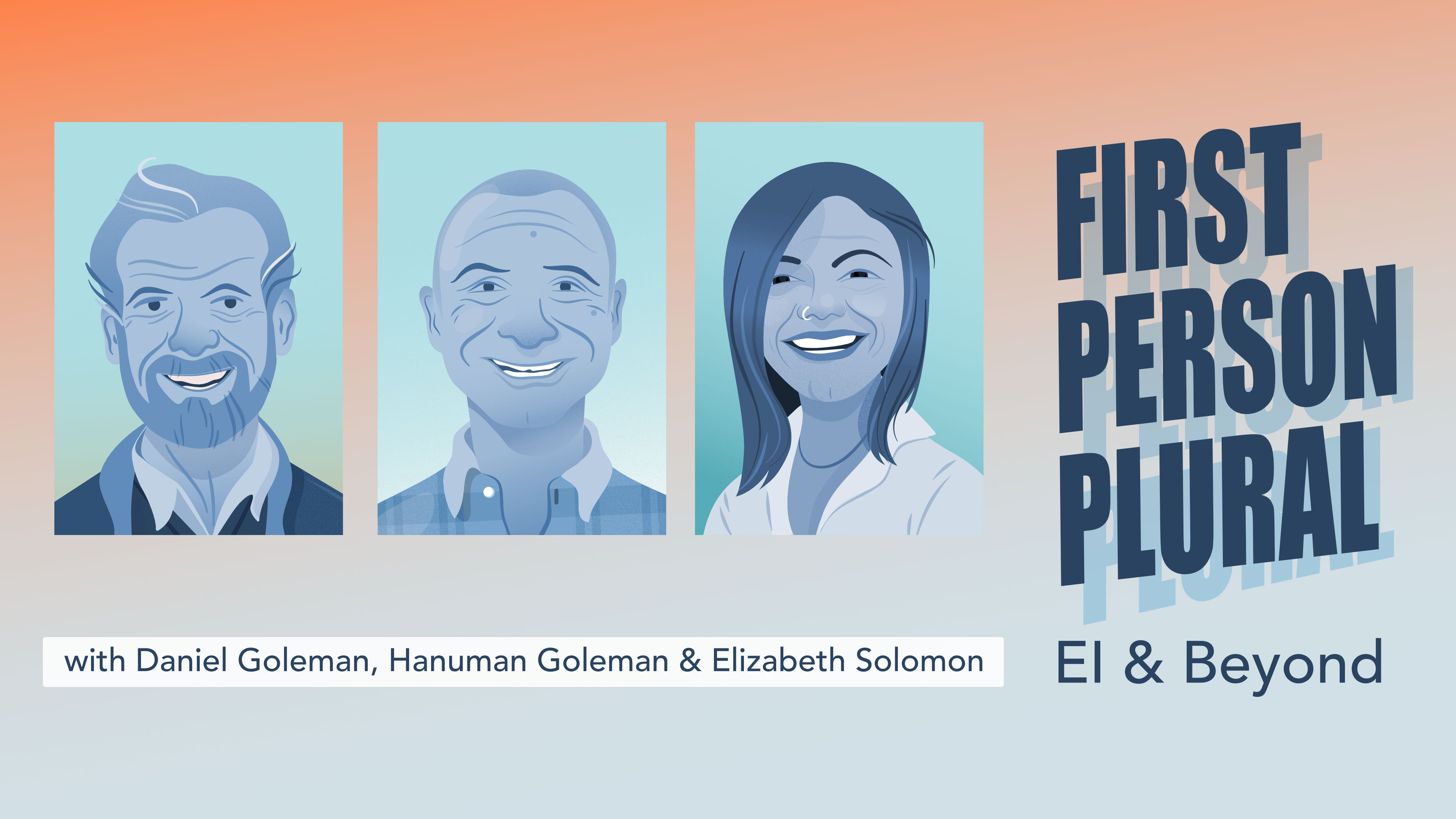
 Apple Podcasts
Apple Podcasts Google Podcasts
Google Podcasts Spotify
Spotify